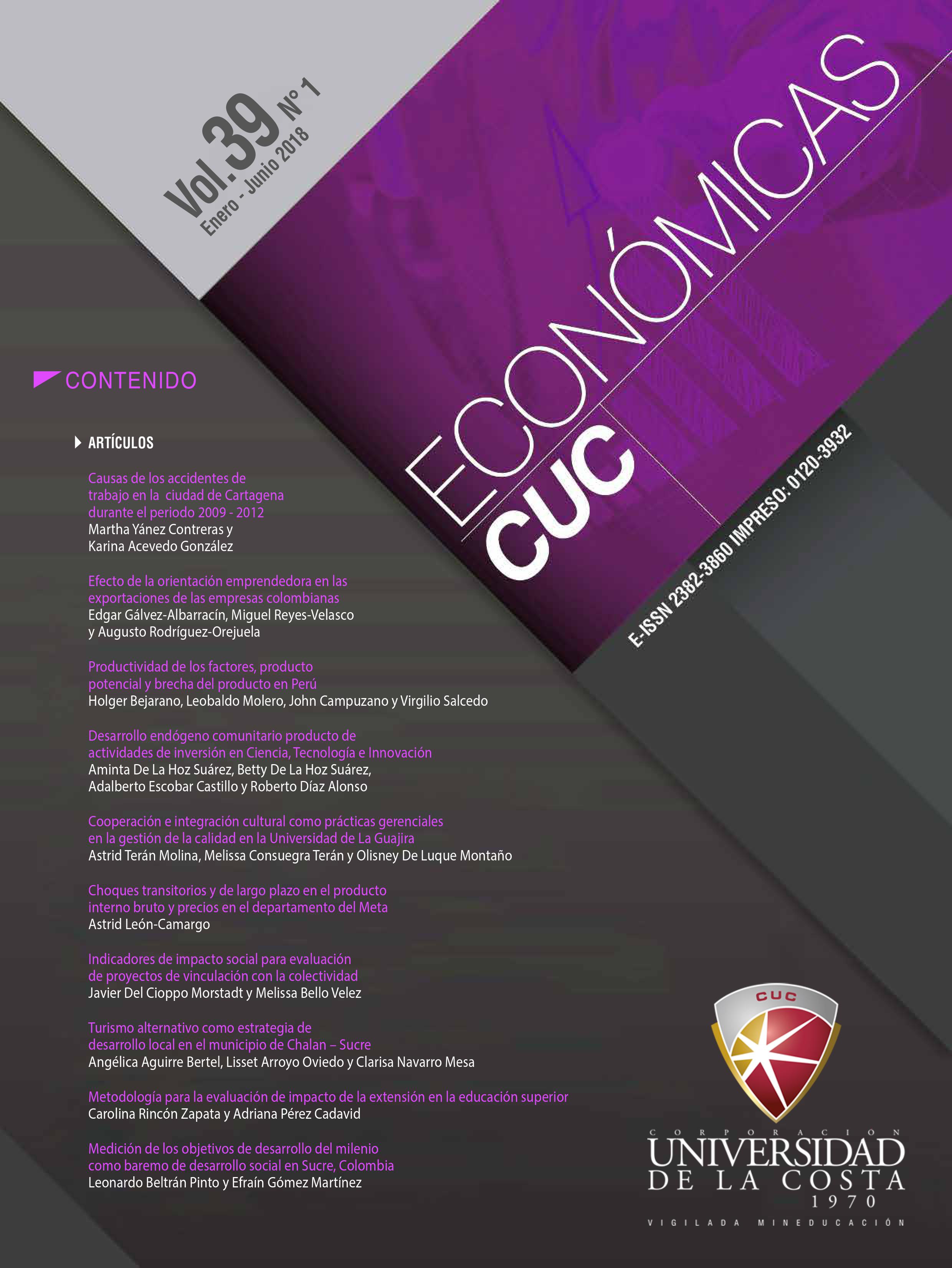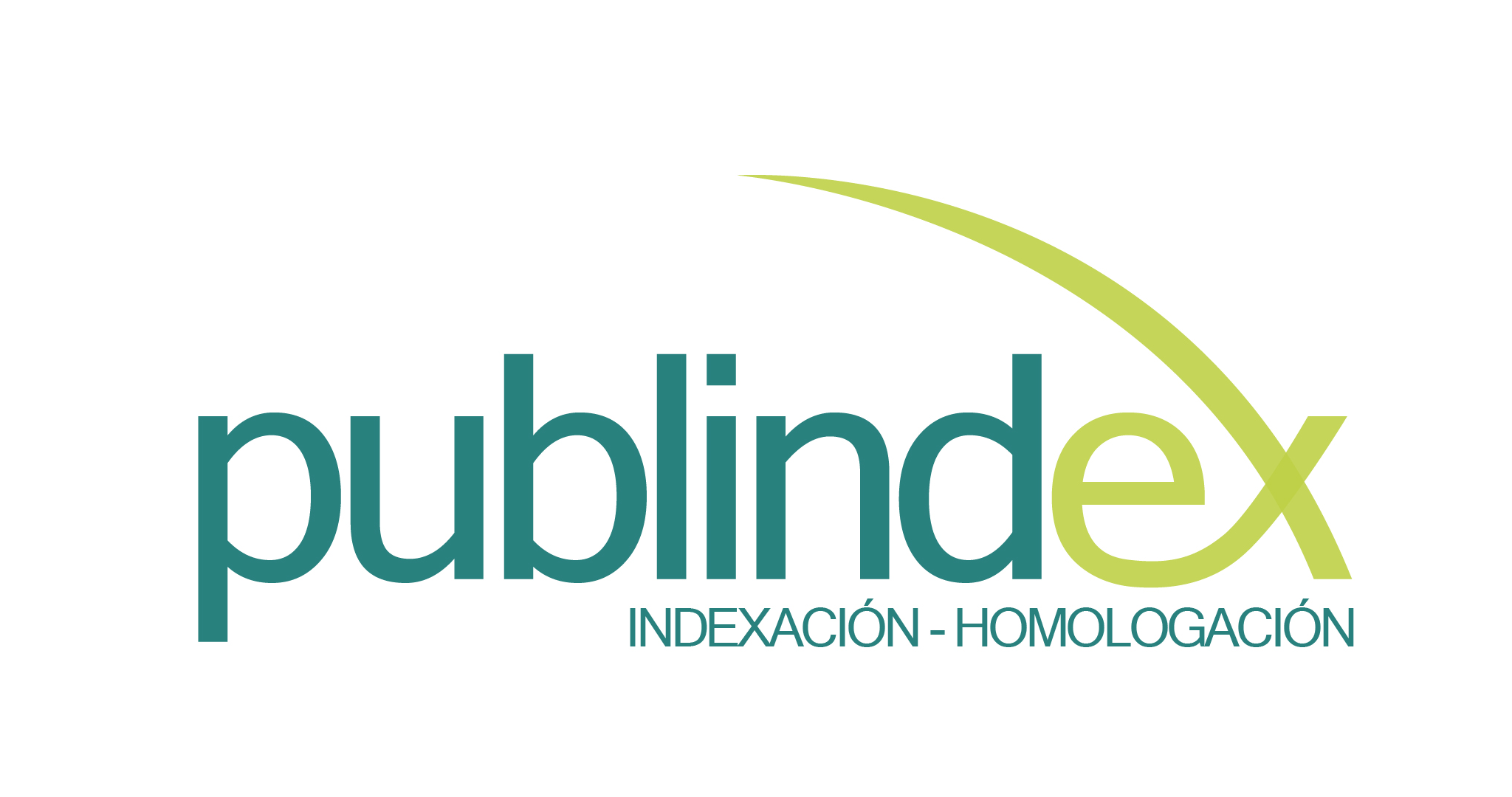Community endogenous development product of investment activities in science, technology and innovation
DOI:
https://doi.org/10.17981/econcuc.39.1.2018.04Keywords:
Endogenous development, science, technology, innovation, investmentAbstract
In Venezuela, the private business sector contributes or invests financial resources required by the Organic Law of Science Technology and Innovation (LOCTI), in order to assist in the development of projects organized by the Ministry of Science and Technology in order to ensure growth sustained by society through the endogenous or sustainable development of the communities, therefore, the objective of the study was to describe the endogenous community development product of the investment in science, technology and innovation activities applied by hardware companies of the Maracaibo municipality. It was cataloged as descriptive, field and documentary, based on Mas (2007), Ochoa (2006) and LOCTI (2005, 2010, 2014). It was found that the business sector originates gross revenues according to the highest rating supported by the regulations, where the decision to contribute or invest in the financing of projects is based on the guidelines stipulated in the law. In addition, the companies observed have decided to boost the learning of their human capital and the families of them and therefore the communities where they operate. It was concluded that there is interest in collaborating with the State to work mutually in the promotion of broad social projects that contribute to the endogenous community development.
Downloads
References
Consejo de Normas Internacionales de Contabilidad–IASB. (2015). Norma Internacional de Información Financiera para Pequeñas y Medianas Entidades (NIIF para las PYMES). Londres: IFRS Foundation Publications Department.
Calderon, R. (2009). Ciencia, desarrollo humano y calidad de vida. Hallazgos. 6(12). 47–57.
Clark, I. (2002). Sostenibilidad y ciencia: ¿alianza o antagonismo? Revista Ciencia, Innovación y Desarrollo, 7(2). 3–12.
Copello, M. y Sanmartí, N. (2001). Fundamentos de un modelo de formación permanente del profesorado de ciencias centrado en la reflexión dialógica sobre las concepciones y las prácticas. Enseñanza de las Ciencias, 19(2), 269-283.
Faría, N. y Torres, C. (2016). Actividades de inversión en materia de ciencias, tecnología e innovación y resultado económico en grandes empresas del sector ferretero del estado de Zulia. (Tesis de licenciatura). Universidad Rafael Urdaneta, Maracaibo. Recuperado de http://200.35.84.131/portal/bases/marc/texto/3401-16-10500.pdf
Hernández, H. y Jiménez, A. (2015). Responsabilidad social empresarial zona urbana del distrito de Barranquilla: estudio etnográfico. Revista Económicas CUC, 36(2), 9–18.
Kady, O. y Acevedo, A. (2014). Liderazgo ético frente a la diversidad cultural den-tro de las organizaciones con régimen disciplinario. Revista Económicas CUC, 35(2), 75-88.
Mas, M. (2007).Desarrollo tecnoendógeno. Ensayos sobre tecnología y desarrollo endógeno. Caracas: Panapo de Venezuela.
Lage, A. (2001). Propiedad y expropiación en la economía del conocimiento. Revista Ciencia, Innovación y Desarrollo,6(4), 29.
Ochoa, A. (2006). Aprendiendo en torno al desarrollo endógeno. Universidad de Los Andes, Centro de Investigaciones en Sistemología Interpretativa, FUNDACITE Mérida y Consejo de Desarrollo Científico, Humanístico y Tecnológico ULA.
República Bolivariana de Venezuela. Asamblea Nacional Constituyente. (1999). Constitución Nacional de la República Bolivariana de Venezuela. Gaceta Oficial 36.860. Venezuela.
República Bolivariana de Venezuela. Asamblea Nacional. (03-08-2005). Ley Orgánica de Ciencia, Tecnologías e Innovación. Gaceta Oficial No. 38242
República Bolivariana de Venezuela. Asamblea Nacional. (16-12-2010). Ley Orgánica de Ciencia, Tecnologías e Innovación. Gaceta Oficial No. 39575.
República Bolivariana de Venezuela. Asamblea Nacional. (18-11-2014).Ley Orgánica de Ciencia, Tecnologías e Innovación. Gaceta Oficial No. 6151.
Downloads
Published
How to Cite
Issue
Section
License
You are free to:
- Share — copy and redistribute the material in any medium or format
- The licensor cannot revoke these freedoms as long as you follow the license terms.
Under the following terms:
- Attribution — You must give appropriate credit , provide a link to the license, and indicate if changes were made . You may do so in any reasonable manner, but not in any way that suggests the licensor endorses you or your use.
- NonCommercial — You may not use the material for commercial purposes .
- NoDerivatives — If you remix, transform, or build upon the material, you may not distribute the modified material.
- No additional restrictions — You may not apply legal terms or technological measures that legally restrict others from doing anything the license permits.


 English
English
 Español (España)
Español (España)














